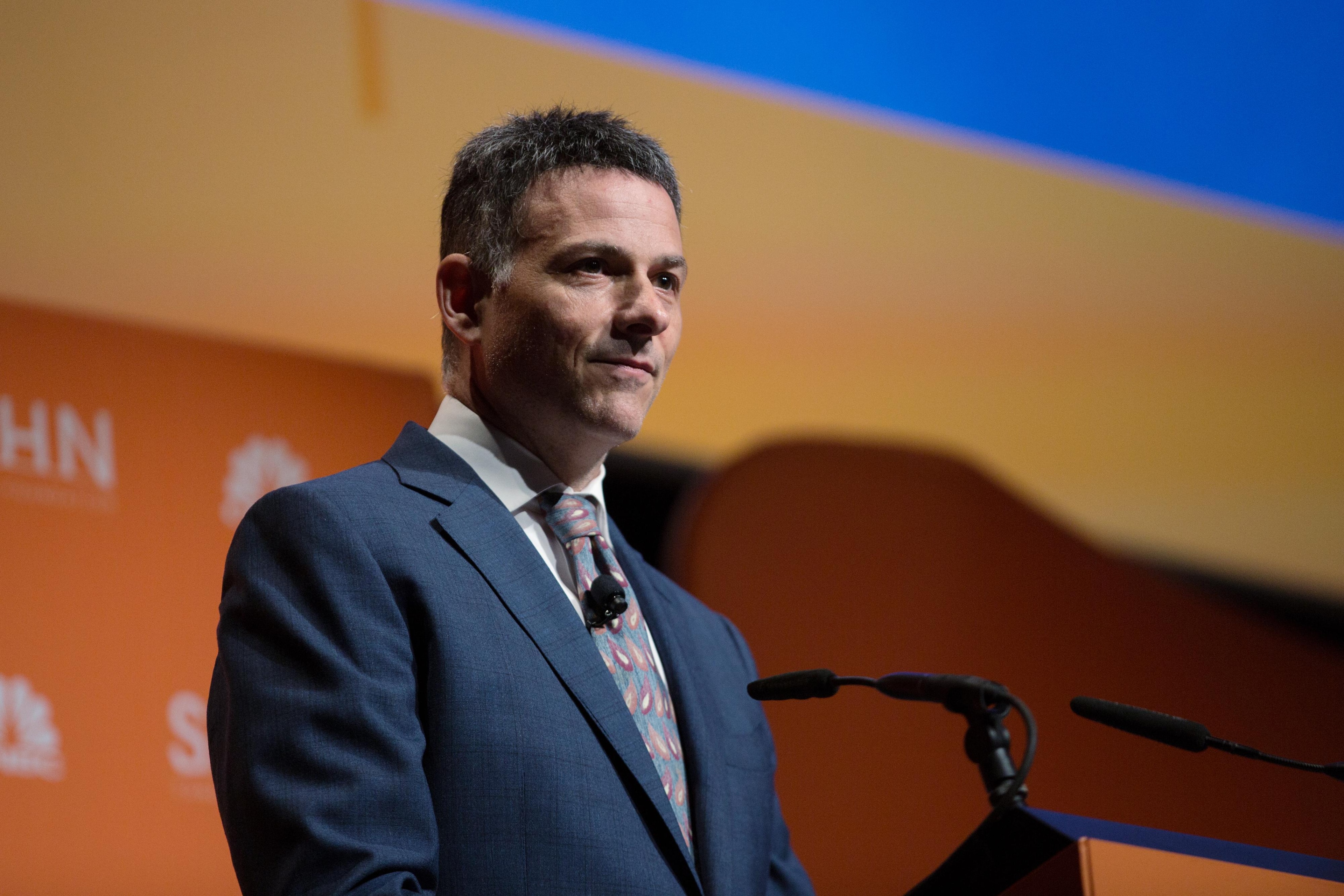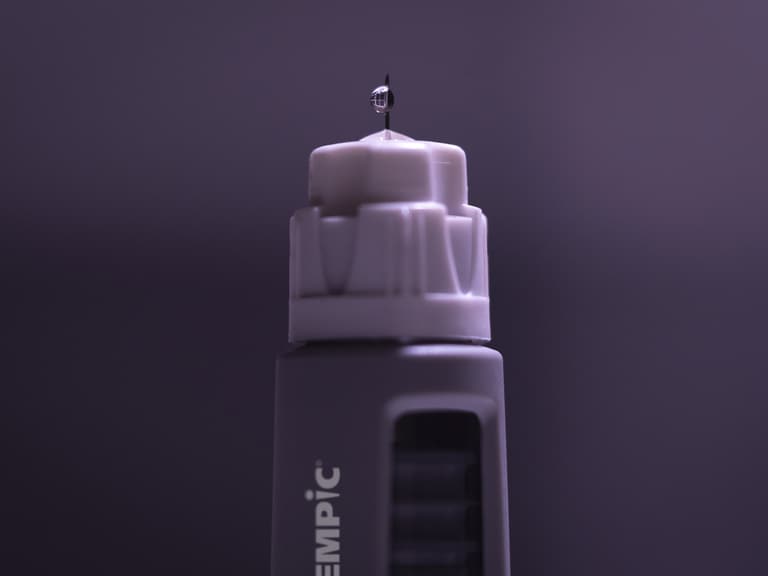To say David Einhorn has had a colourful career is like claiming the road to Brexit has been a little bumpy. The American investor’s strategy of publicly shorting stocks and claiming irregularities at high-profile organisations has led to a six-year spat with Allied Capital, helped bring down Lehman Brothers bank and most recently ignited a bitter ongoing personal feud with Elon Musk.
Along the way, he’s managed to incur the second-biggest individual Financial Services Authority (FSA) fine ever of $11m for insider trading, as well as winning more than $5m in various poker tournaments. Boring he isn’t.
Einhorn is, however, often right — or at least he used to be. Since launching the hedge fund Greenlight Capital in 1996 (he was only 27 at the time) with $900,000 in upstart capital, his value-oriented investment strategy helped grow the fund’s assets under management to $10bn by November 2019.
$11million
Einhorn's FSA fine - the second-largest fine ever
Up to 2015, the fund regularly outperformed the broader market, most notably returning a spectacular 24% and 32% in the respective years either side of the 2007-08 global crash. Most famously of all, Einhorn made arguably this sharpest and most prescient call during that whole crisis with a shock decision to short Lehman Brothers. Weeks later, the bank had collapsed.
That position made him a short-selling legend. All of which meant that when Einhorn makes a move — such as shorting Netflix [NFLX], claiming in a letter to clients on 22 January that the streaming site’s “growth story is busted” — the world tends to take notice.
After all, this is the man whose uncanny ability to sniff out trouble led analysts to coin the phrase “the Einhorn effect”, referring to the numerous times his public announcement of a short has prompted a sell-off in a company’s share price.
Greenlight struggles to claw back gains
However, the 51-year-old has not in recent years shown the Midas touch he once had. A steady underperformance over the last few years culminated in Einhorn’s annus horribilis in 2018. In a 96-slide presentation to shareholders that detailed investments that went awry, he described it as “the year we didn’t get anything right”.
Greenlight Capital’s main fund declined 34% in 2018, its worst return since Einhorn started the firm. The fund rallied to a 13.8% return last year, yet the annual performance was still significantly down on the S&P 500’s 30.43%.
$34%
Greenlight Capital's fund decline in 2018
This underperformance will have found little sympathy from companies that over the years have suffered from what some analysts have labelled a “short and distort” strategy. The unethical practise involves an exponent shorting a stock who then allegedly spreads rumours to discredit the company to drive down its value.
Einhorn is widely quoted as describing an investing style in which he will take “the traditional value investor's process and just flip it around a little bit”. Einhorn previously explained that the “traditional value investor asks, 'Is this cheap?' and then 'Why is it cheap?'” He went on to explain that “We start by identifying a reason something might be mispriced, and then if we find a reason why something is likely mispriced, then we make a determination whether it's cheap”.
“We start by identifying a reason something might be mispriced, and then if we find a reason why something is likely mispriced, then we make a determination whether it's cheap” - David Einhorn
Einhorn’s ace in the hole for the first 20 years of the fund’s life was that many of his public callouts turned out to be astutely true. When he accused Allied Capital of distorting its debt level to mislead investors, its value dropped 20%. Despite the company accusing Einhorn of “manipulating the market”, a Securities and Exchange Commission investigation found Allied had broken securities laws.
When he shorted Lehman Brothers, he accused the bank of breaking accounting laws, which proved accurate. Even when he and Greenlight were fined a total $11m by the FSA for trading ahead of a 2009 equity fundraising by Punch Taverns, the UK regulators acknowledged his insider trading was “not deliberate or reckless”.
Locking horns with Musk and Netflix
But that was then. Einhorn’s natural bearish instincts are currently coming off worse in a lively exchange of playground insults with Elon Musk, after Greenlight shorted Tesla and compared its owner’s conduct to that of Lehman Brothers’ management.
“Rather than communicating the truth to shareholders,” Einhorn said in a letter to shareholders in October 2018. “Mr Musk bluffed his way through the crisis.” Following the pattern of Einhorn’s previous callouts, Tesla’s shares immediately fell. However, they then proved more resilient than Greenlight’s previous shorts by bouncing back and rallying to new highs in the last 12 months.
“Rather than communicating the truth to shareholders. Mr Musk bluffed his way through the crisis” - David Einhorn in his 2018 shareholder letter
When Tesla posted better-than-expected Q3 2019 figures, Musk couldn’t resist basking in Einhorn’s misfortune, translating his rival’s name from its German origin to tweet. “Dear Mr Unicorn (great name btw!)”, he wrote, gloating over “the losses you suffered” from Tesla’s success and sardonically telling Einhorn, “you have our sympathies”.
So, what should investors make of the no-longer-infallible Greenlight’s increased shorting of Netflix? “We have been negative on Netflix’s earnings prospects for a long time, and we used the late-2019 bounce in the shares to make it a more substantial investment,” wrote Einhorn in a letter to shareholders on 21 January.
According to reports, Einhorn described Netflix as “an open-ended growth story” and highlighted highlighting a “perceived ‘winner-take-all’ global market for streaming video-on-demand’ ”.
“We have been negative on Netflix’s earnings prospects for a long time, and we used the late-2019 bounce in the shares to make it a more substantial investment” - Einhorn in his January shareholder letter
However, as Seeking Alpha reported, Einhorn stated that “We believe this narrative is coming to an end.”
He cited a combination of increased competition as one of the major factors. “There are now a half-dozen subscription services and in the coming year, there will be additional credible entrants with deep content libraries. Not every customer will choose to subscribe to all services, and on the margin, substitution will occur," he was quoted as stating.
However, Netflix has suffered no noticeable dip in its share price, perhaps because investors, while possibly acknowledging Einhorn’s concerns on debt load, cash burn and future content obligations, point to the nine million net global subscribers the company attracted in Q4, and the 160 million happy viewers worldwide.
But you never know with Einhorn. This is a man whose poker face once won him $4.35m for finishing third in the World Series in Las Vegas. He may not have had the upper hand recently, but he hasn’t cashed in his chips either. Is he bluffing or playing it straight? One thing’s for certain — with his track record, you certainly wouldn’t bet against him.
Continue reading for FREE
- Includes free newsletter updates, unsubscribe anytime. Privacy policy





